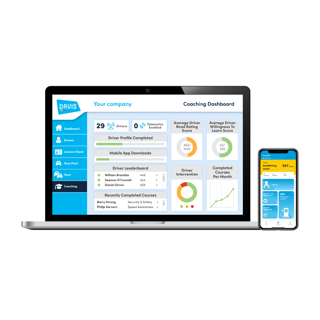Ford has changed the official replacement interval for the 'wet belt' timing belt fitted to some of its diesel vans.
The service interval for the timing belt, tensioner and idlers has been reduced to six years or 160,000km (100,000 miles), from 10 years or 240,000km (150,000 miles). This applies to all Transit and Transit Custom, Van and Tourneo vehicles fitted with a 2.0-litre EcoBlue diesel engine.
A statement issued by Ford said: "The service interval has been changed in order to address issues with timing belt service life, caused by engine oil dilution/ vehicle operation conditions/ usage. Oil dilution can occur on the latest generation of low-emission diesel engines when the emissions system cleans the diesel particulate filter (DPF) and is influenced by the customer’s vehicle use cycle."
The change in service interval poses a problem for fleet operators with longer replacement cycles. One fleet manager told Fleet News they now face larger SMR costs and additional downtime to get the required service work carried out.
Ford has previously repaired a number of out-of-warranty vehicles that suffered from premature timing belt failure as a goodwill gesture. Now the timing belt interval has been changed, affected vehicles that are between six and 10 years old pose a higher-risk to operators.
Vehicle manufacturers are increasingly refusing longer-term, out-of-warranty claims, according to the AFP.
Paul Hollick, APF chair, said: “In the wake of the pandemic and subsequent vehicle shortages, many fleets were forced into extending their replacement cycles substantially and quite a few are continuing to operate aged vehicles even though supply is much improved.
“What fleets have learnt is that it is possible to keep vans on the road in safe and efficient condition for much longer than previously thought. However, this is also generating a new series of questions around maintenance and longer-term claims.
“Especially, manufacturers have historically tended to honour out-of-warranty claims on a goodwill basis if parts failed within recommended replacement schedules. Now, we are starting to see instances of these being refused for what look like debatable reasons, even if the vehicles in question have ostensibly complete service records.”
The EcoBlue diesel engine was introduced in 2016 as a "game-changer", bringing significant reductions in CO2 and Nox emissions. The engine design places the timing belt inside the engine, where it suberged in oil. The setup enhances efficiency but leaves the belt vulnerable to oil contamination. Ford said the engine underwent 3.4 million miles of endurance testing during its development.
Since the Ford EcoBlue engine was introduced, Ford says it has taken steps to minimise the impact of oil dilution. The manufacturer advises its customers to observe the oil life notifications in the vehicle and on connected software apps, and to ensure the oil is changed when advised.
The wet belt design is also used on some of Ford's Ecoboost petrol engines, where similar failures have been reported. The issue was picked up by BBC's Watchdog earlier this year.





















Login to comment
Comments
No comments have been made yet.